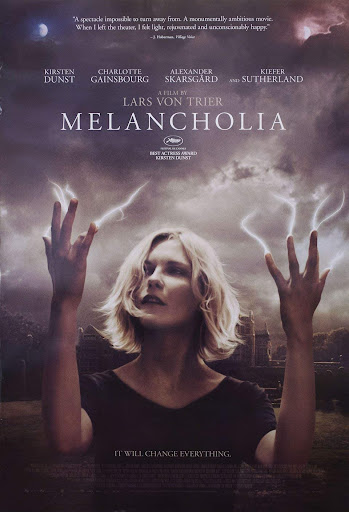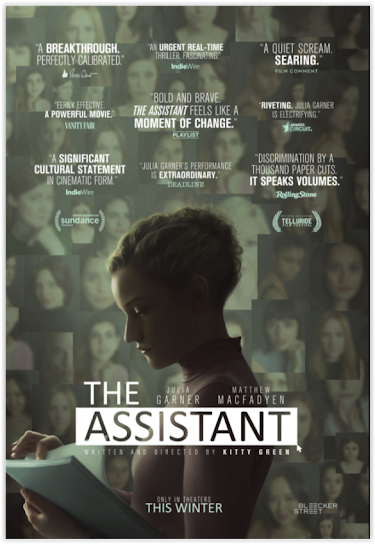This "Hitch-Hiker" gets a thumbs-up
Tuesday, April 26, 2022
Albeit a bit brief in runtime, The Hitch-Hiker (1953) doesn’t come up short in the suspense department, thanks to deft direction by Ida Lupino and the fact that the gist of the narrative is derived from a true-crime tale. The CineVerse bunch enjoyed examining this movie last week, and the highlights of our discussion are encapsulated below (to listen to a recording of our group chat, click here).
What did you find different, unexpected, surprising, or memorable about The Hitch-Hiker?
- It’s directed by a woman: Ida Lupino, a prolific and widely respected Hollywood actress who started her own independent production company with her husband and went on to direct numerous feature films and episodes of television series. Lupino is credited as the only woman who helmed a classic film noir and is one of the rare examples of a female director, period.
- This story is loosely based on the true-life crime spree of William Cook, who, as a hitchhiker, murdered many people, including a family with three children. Lupino and company wanted to make a straightforward adaptation of Cook’s exploits, but the Production Code Administration would not allow that, fearing that a reenactment would glamorize Cook.
- The Hitch-Hiker is rare for this era in that it uses authentic Hispanic actors and gives major significance to the Mexican police as being instrumental in capturing Myers and freeing his captives.
- Most of the scenes occur within the vehicle driven by Roy and Gil – creating a claustrophobic milieu in which the viewer can palpably feel the tension and inescapable closeness of the killer.
- Also, unlike many previous noir pictures, this story is not set in a dark urban jungle like New York City or Los Angeles. Instead, most of the scenes occur in broad daylight and are shot on location in desert locales and wilderness settings. This lends the movie a documentary-like authenticity, which is helped by including scenes involving American and Mexican law enforcement authorities collaborating to track down Myers.
- Considering the merging of these elements, The Hitch-Hiker plays as a pseudo-noir true crime police procedural with an infusion of neorealism.
- The early 1950s, which is when this movie was released, was known for social problem films like this one.
Major themes
- Dissolution with the American dream and the unfulfillment of the promise of a better postwar life for many Americans. Roy and Gil are trying to escape the pressures and monotony of everyday married life and enjoy a masculine fishing adventure in which they may indulge in a few immoral vices in Mexicali. Myers represents the postwar male who has completely abandoned the American dream, using cold-blooded violence to achieve his ends while indulging in senseless sociopathic killing.
- Deep Focus Review writer Brian Eggert wrote: “(Lupino’s) distinct perspective, which neither aligns with the typical studio outlook nor a decidedly feminist one, turns The Hitch-Hiker into a film that characterizes the social oppression of postwar America on the individual… The Hitch-Hiker, most of all, uncovers her interest in the idyllic American Dream as a crumbling façade, behind which the individual is suppressed…. Like his country, Myers tries to veil his insecurities and cruelty with macho violence. Lupino critiques his brand of masculinity, which feeds on the postwar American Dream by killing it. But she also questions another kind of man, represented by Myers’ captives, who quietly suffers under punishing, existentially stifling conditions.”
- Eggert further wrote: “The Hitch-Hiker remains distinct as a film of 1953 because it challenges social conventions, not the least of which is the masculine ideal—a form of feminist perspective that many of Lupino’s critics would either overlook or altogether dismiss…The Hitch-Hiker subverts the American Dream by uncovering the ugly reality underneath in the same manner as Alfred Hitchcock’s Shadow of a Doubt (1943) and Orson Welles’ The Stranger (1946). She destabilizes the American family by suggesting Collins and Bowen, two otherwise loyal husbands, need to escape their wives for a sordid trip to Mexico. She questions the romantic pastime of hitchhiking by exposing the real-life killer who used America’s highways as his hunting grounds. And she shows the American police as disorganized and not always capable of catching the bad guy. Telling this story from a woman’s perspective in the 1950s, Lupino herself elevates the film’s brutal worldview by being an example of domestic nonconformity.”
- Trust and loyalty
- Grace under pressure. Gil and Roy survive because, for the most part, they maintain their composure, avoid the impulse to act rashly, and leave clues behind that ultimately lead the authorities to them and their abductor.
Similar works
- Detour
- Shadow of a Doubt
- Thought Stranger
- While the City Sleeps
- Touch of Evil
- Kansas City Confidential
- 3:10 to Yuma
Other works directed by Ida Lupino
- Not Wanted!
- Never Fear
- Outrage
- Hard, Fast and Beautiful
- The Bigamist
- The Trouble With Angels
- Episodes of Alfred Hitchcock Presents, The Twilight Zone, and Have Gun Will Travel









